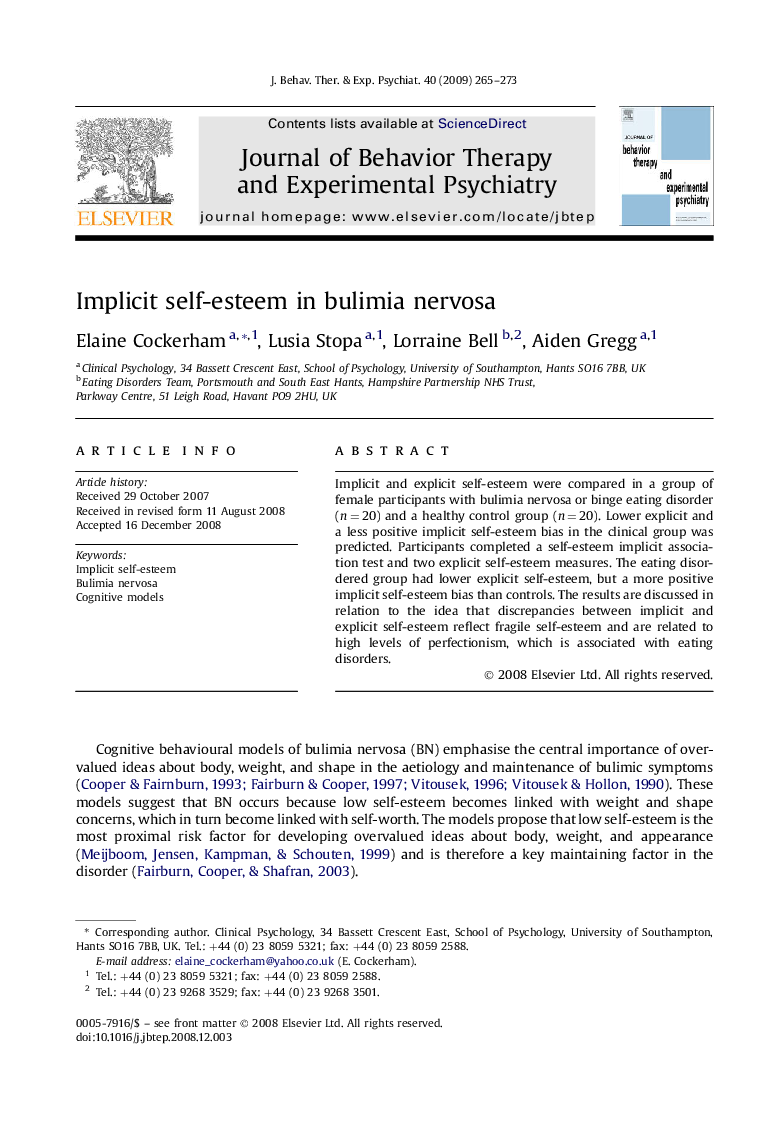| Article ID | Journal | Published Year | Pages | File Type |
|---|---|---|---|---|
| 910550 | Journal of Behavior Therapy and Experimental Psychiatry | 2009 | 9 Pages |
Abstract
Implicit and explicit self-esteem were compared in a group of female participants with bulimia nervosa or binge eating disorder (n = 20) and a healthy control group (n = 20). Lower explicit and a less positive implicit self-esteem bias in the clinical group was predicted. Participants completed a self-esteem implicit association test and two explicit self-esteem measures. The eating disordered group had lower explicit self-esteem, but a more positive implicit self-esteem bias than controls. The results are discussed in relation to the idea that discrepancies between implicit and explicit self-esteem reflect fragile self-esteem and are related to high levels of perfectionism, which is associated with eating disorders.
Related Topics
Health Sciences
Medicine and Dentistry
Psychiatry and Mental Health
Authors
Elaine Cockerham, Lusia Stopa, Lorraine Bell, Aiden Gregg,
